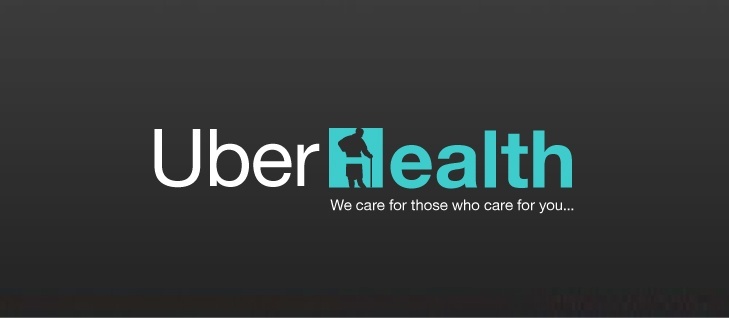
Editor’s Note: Stuart Karten is the principal of Karten Design, a product innovation consultancy creating positive experiences between people and products specializing in health technology. This post was adapted from a speech given at MD&M West on Feb. 12.
The Uber business model will soon come to healthcare.
Just as Uber changed transportation in positive—and sometimes controversial—ways, healthcare will be infiltrated by startups wanting to change the healthcare model from hospital-centric to patient-centric. Medical device companies and other healthcare providers that don’t realize that a major shift is taking place will become the equivalent of today’s taxi industry.
While medical technology lags behind consumer technology development due to more regulatory oversight, the Uber model is becoming analogous to what we are currently seeing at our design firm: more and more companies come to us in an effort to “disrupt” existing models. In the decades preceding 2015, medical technology products were solely focused on clinicians, but today’s most progressive companies want to design health products for patients and their caregivers.

Like modern healthcare systems, the taxicab model was inefficient, not mobile, and often unpleasant for the consumer. Anyone who has tried to get a cab in San Francisco will tell you: it was a model built around the needs of taxi drivers and their companies, rather than their consumer. Mobile technology has existed for over a decade, but the taxi industry has simply refused to embrace it, holding on to its old ways. Enter Uber. It uses a mobile platform. It is GPS-enabled. It allows a consumer to rate the driver. It’s paperless. It’s efficient. And while Uber has faced regulatory pushback, its boldness has been handsomely rewarded. Regulation typically drafts behind, not ahead, of innovation.
Healthcare hasn’t yet seen its version of Uber. But the signs are there: within the next decade, Uber-like companies will emerge.
We are seeing a major shift in healthcare brought on by cultural and socio-economic forces. The population is aging, chronic conditions that require management during patients’ daily lives are on the rise, and Accountable Care is putting pressure on healthcare systems to measure and quantify results. Alongside these issues, we are seeing widespread connectivity emerge across all economic classes. Portio Research estimates some 6.9 billion cell phones are currently in use worldwide. That’s up from 2 billion in 2005, according to Wireless Intelligence.
We are also seeing a transformation of the man-machine relationship—we are starting to wear computers, and soon, we will be implanting them into our bodies to connect with our communication systems, cars, and homes. As artificial intelligence improves, it will help us interact with increasingly smart environments. In healthcare, highly evolved sensors and powerful algorithms will give us proactive, personalized care. By 2035, the majority of our treatments will occur at home. Our home will be watching us and helping us track our health.
Technology has set all of this change in motion. It’s up to product designers and developers to ensure that patients have a positive experience with this new technology—that it makes their lives simpler and richer rather than burdening them down. Traditional medical products are developed with an emphasis on physical and cognitive usability. The New Health products, which will meld with our bodies, homes, and lives in a much more intimate way, must create deeper connections between our cognitive, physical, and especially emotional needs.
We are already seeing more empowered patients. People want information. They want to make their own diagnosis. They want to research their doctors. They want their own health data. And caregivers want to be—and must be—part of the loop. In 2009, about 42.1 million family caregivers in the United States provided care to an adult with limitations in daily activities at any given point in time. The estimated economic value of their unpaid contributions was approximately $450 billion. Caregivers want to use connectivity tools to keep track of loved ones—data, connectivity, sharing—even from a distance. So healthcare will be personal, but also easier for the people who love you.
I imagine a world in the next 30 years that looks like this: Patients receive personal care around the clock. Virtual coaches and doctors work one-on-one with patients to optimize day-to-day preventative care. Everyone has their own virtual care team that lives with them in augmented reality. Meanwhile, primary care physicians (real humans) are assigned to a pool of patients that they monitor remotely, supported by a team of real human specialists. But much of the “personal” connection will be done through virtual humans.
Today we say, “Use this cane to walk.” Or, “Use this pump; it’ll save your life,” and assume that users will readily adopt these products. As health companies create products for the modern consumer, they will have to shift their focus toward how these products fit into the larger context of people’s lives. Understanding and meeting patients’ needs and desires will become a bigger differentiator, and more crucial to adoption than ever before.
It all starts now. Healthcare must shift its focus toward the patient. Successful medical products will put the patient’s needs first and foremost. Just as Uber has demonstrated with putting the passenger first, ignoring the patient will be fatal for health solutions companies: they will be the new taxi drivers, baffled by how the world has passed them by.
Stuart Karten is the principal of Karten Design, a product innovation consultancy creating positive experiences between people and products through design research, industrial design and engineering. Since 1984, Karten Design has worked with leading companies in the medical and consumer electronics industries to develop products that connect with end user needs and build clients’ brands. Follow him on Twitter at @StuartKarten
